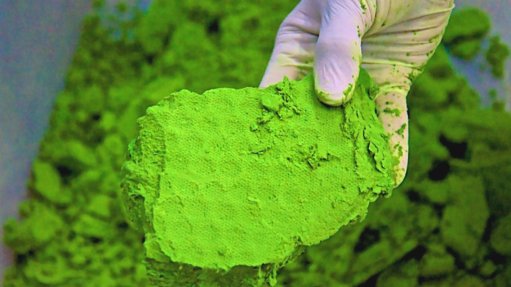
Agata
Photo by: TVI Pacific
TORONTO (miningweekly.com) – Calgary-based TVI Pacific, which is working to earn a 60% interest in the Agata iron/nickel laterite project, in the Agusan del Norte province, Philippines, has produced nickel hydroxide product (NHP) at its pilot plant.
The company reported on Monday that a pregnant leach solution was passed through a counter-current ion-exchange pilot plant that recovered about 99.3% of the nickel. After dewatering, the filter cake graded between 52% and 54% nickel, which validated the company’s process and established all design parameters for the full-scale plant.
TVI said that it had also produced a mixed hydroxide product grading 36% nickel, which after a two-stage precipitation step, could be upgraded to a grade of more than 40% nickel.
The final stage of pilot plant operation would comprise treating the barren solution from the ion-exchange plant to produce a disposable effluent, and to perform ecological tests for residues.
The Agata project is a joint venture (JV) of TVI Pacific and 75% owner, Edmonton-based Mindoro Resources. The JV partners intend to develop a near-term high iron laterite direct shipping ore (DSO) operation and a limestone DSO operation. Later in the project’s life, the JV partners plan to build a lime plant and the nickel processing plant.
The Agata project has a measured and indicated resource of 33.9-million tonnes grading 1.1% nickel and an inferred resource of two-million tonnes at 1.04% nickel.
The feasibility study last year estimated that the Agata project would require a capital investment of some $10.1-million, and would deliver a net present value of $37.9-million and an internal rate of return of 187%.
First DSO shipments would take place by the fourth quarter of 2013, and shipping rates would accelerate to 2.5-million tonnes a year by 2015.